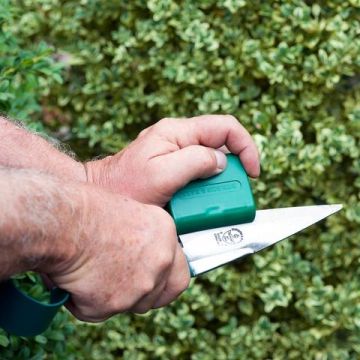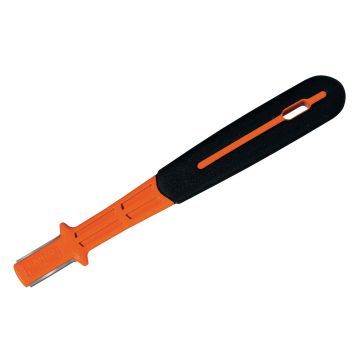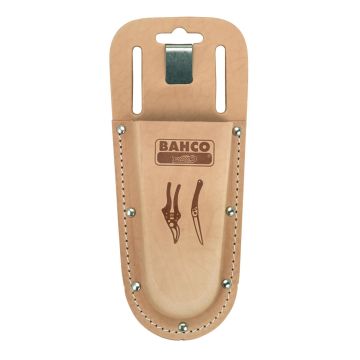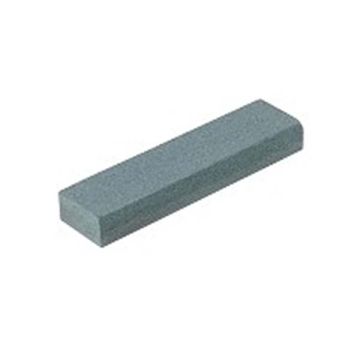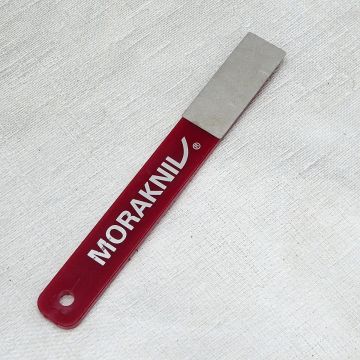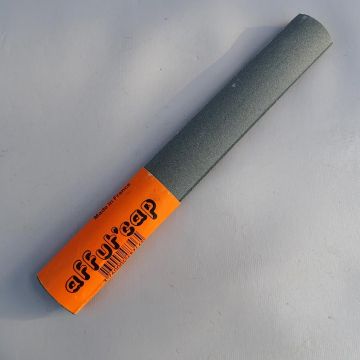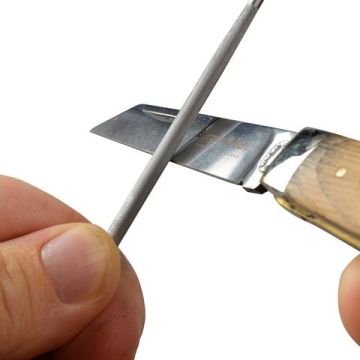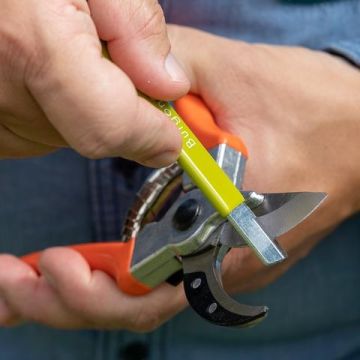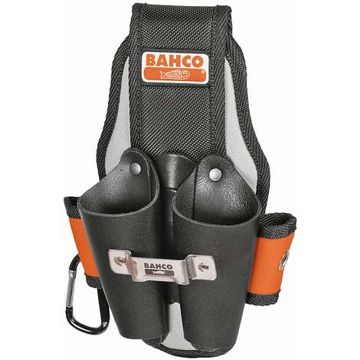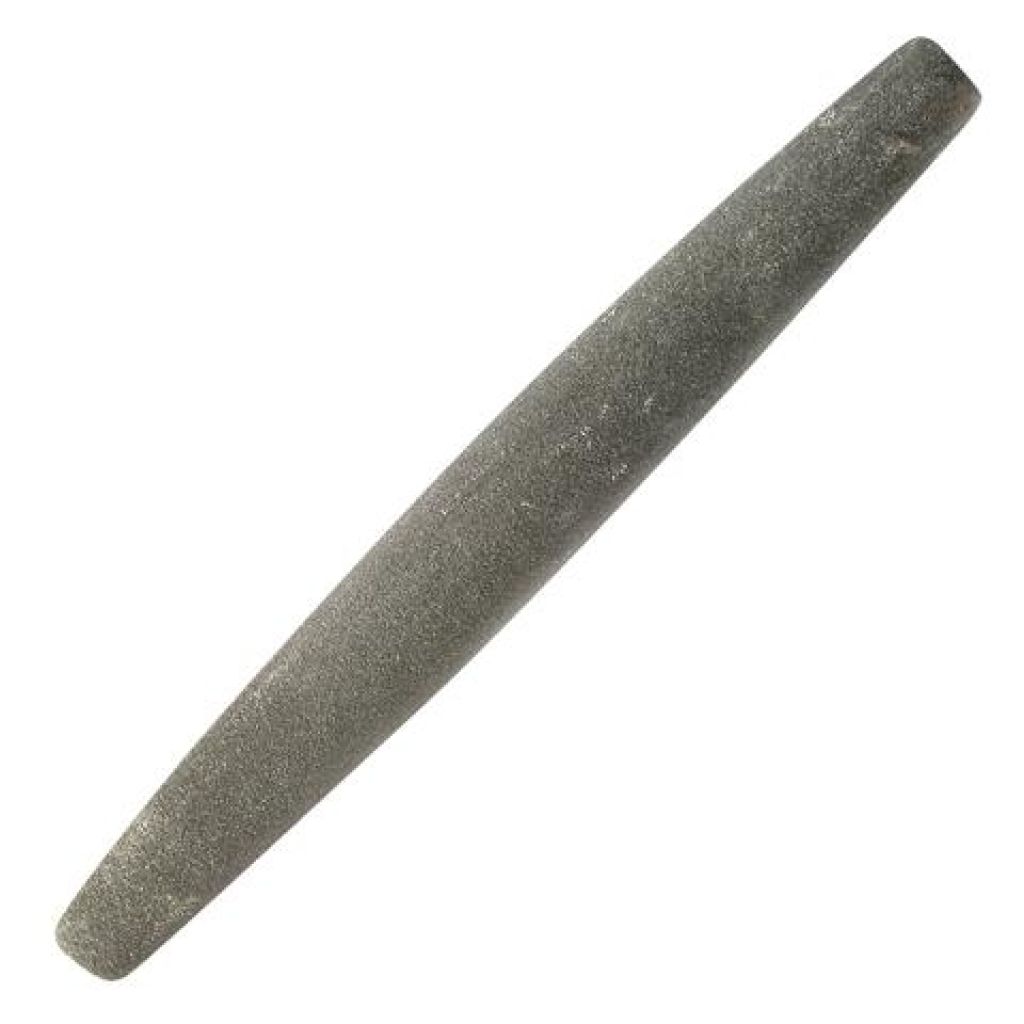

Burgon & Ball sharpening stone
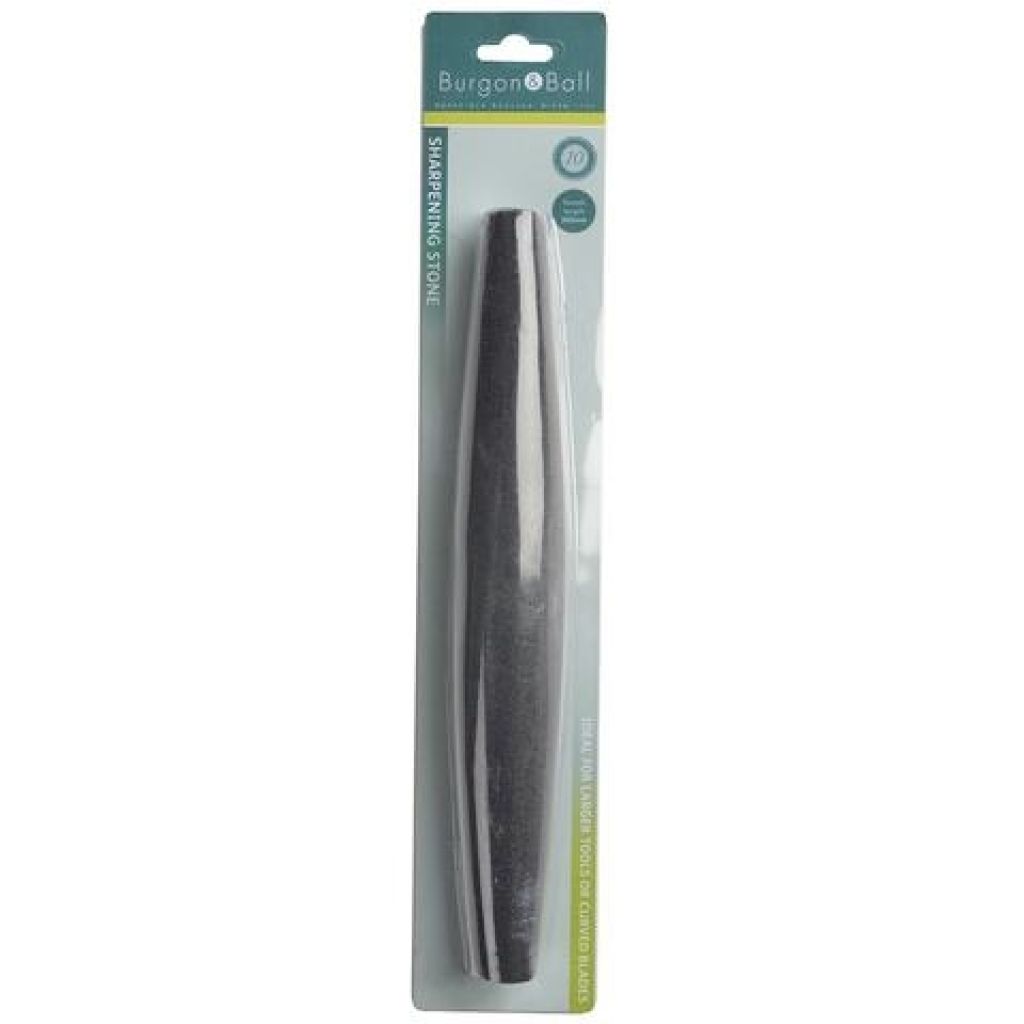

Burgon & Ball sharpening stone
Burgon & Ball sharpening stone
Special offer!
Receive a €20 voucher for any order over €90 (excluding delivery costs, credit notes, and plastic-free options)!
1- Add your favorite plants to your cart.
2- Once you have reached €90, confirm your order (you can even choose the delivery date!).
3- As soon as your order is shipped, you will receive an email containing your voucher code, valid for 3 months (90 days).
Your voucher is unique and can only be used once, for any order with a minimum value of €20, excluding delivery costs.
Can be combined with other current offers, non-divisible and non-refundable.
We guarantee the quality of our plants for a full growing cycle, and will replace at our expense any plant that fails to recover under normal climatic and planting conditions.
The Burgon & Ball sharpening stone is specifically designed to quickly and easily restore the edge of all sharp tools, particularly pocket knives and secateurs.
The dormant season is the ideal time for pruning and training ornamental or fruit trees in the garden. To ensure clean cuts, use perfectly sharp tools.Don't wait until the cutting edge of the tools is too dull to sharpen them. A cut that is not clean damages the plant by leaving strips of bark or tissue, which are prone to diseases or parasites.Only sharpen clean tools. To do this, wash them with clean water and then dry them to prevent rust.
Sharpening stones are essential for maintaining the cutting edge and ensuring not only the quality of the cut, the longevity of the blades and counter-blades, but also an optimization of cutting effort. This also allows for longer intervals between sharpenings.
Often overlooked by gardeners, it is necessary to disinfect cutting tools as often as possible. To do this, use a cloth soaked in 90° alcohol. It destroys parasites, fungi, or viruses that may have settled on a diseased plant.
Remember to sharpen your cutting tools after each use
Sharpening a cutting tool after each use is much easier than waiting until the tool no longer cuts at all. In the first case, it will require little time and effort. Whereas in the second case, the task will be much more difficult.
The correct sharpening technique
Sharpening is always done from the inside to the outside and from both sides. Respect the original angle for better efficiency. At the end of the operation, remove the slight burr that forms at the tip of the cutting edge with a flat file.
Sharpening tip
Before you begin, colour the part to be sharpened with an indelible black marker and sharpen until no trace of the marker is visible on the cutting edge.
This traditional sharpening stone is guaranteed for 10 years, but we advise you to take care of your sharpener and store it away from the weather and sunlight.
Technical specifications:
- Length: 28cm (11in).
-
Weight: 200g
It must be acknowledged that the British have the privilege of being the reference in gardening (if not in cooking). Promesses de Fleurs has chosen the English company Burgon & Ball for the quality of its materials and its methods of manufacturing steel that is soon to be three centuries old. The company has been working with steel in Sheffield since 1730, starting with a patent for solid steel sheep shears. The production of garden shears and equipment quickly surpassed that of sheep shears, but the stainless steel tools from Burgon & Ball are officially approved by the Royal Horticultural Society - probably the ultimate reward in the gardening industry. And it is known that to have good tools, they must be well maintained.
Technical features
Tips
Other Maintenance for Cutting Tools
View all →This item has not been reviewed yet - be the first to leave a review about it.
Haven't found what you were looking for?
Hardiness is the lowest winter temperature a plant can endure without suffering serious damage or even dying. However, hardiness is affected by location (a sheltered area, such as a patio), protection (winter cover) and soil type (hardiness is improved by well-drained soil).

Photo Sharing Terms & Conditions
In order to encourage gardeners to interact and share their experiences, Promesse de fleurs offers various media enabling content to be uploaded onto its Site - in particular via the ‘Photo sharing’ module.
The User agrees to refrain from:
- Posting any content that is illegal, prejudicial, insulting, racist, inciteful to hatred, revisionist, contrary to public decency, that infringes on privacy or on the privacy rights of third parties, in particular the publicity rights of persons and goods, intellectual property rights, or the right to privacy.
- Submitting content on behalf of a third party;
- Impersonate the identity of a third party and/or publish any personal information about a third party;
In general, the User undertakes to refrain from any unethical behaviour.
All Content (in particular text, comments, files, images, photos, videos, creative works, etc.), which may be subject to property or intellectual property rights, image or other private rights, shall remain the property of the User, subject to the limited rights granted by the terms of the licence granted by Promesse de fleurs as stated below. Users are at liberty to publish or not to publish such Content on the Site, notably via the ‘Photo Sharing’ facility, and accept that this Content shall be made public and freely accessible, notably on the Internet.
Users further acknowledge, undertake to have ,and guarantee that they hold all necessary rights and permissions to publish such material on the Site, in particular with regard to the legislation in force pertaining to any privacy, property, intellectual property, image, or contractual rights, or rights of any other nature. By publishing such Content on the Site, Users acknowledge accepting full liability as publishers of the Content within the meaning of the law, and grant Promesse de fleurs, free of charge, an inclusive, worldwide licence for the said Content for the entire duration of its publication, including all reproduction, representation, up/downloading, displaying, performing, transmission, and storage rights.
Users also grant permission for their name to be linked to the Content and accept that this link may not always be made available.
By engaging in posting material, Users consent to their Content becoming automatically accessible on the Internet, in particular on other sites and/or blogs and/or web pages of the Promesse de fleurs site, including in particular social pages and the Promesse de fleurs catalogue.
Users may secure the removal of entrusted content free of charge by issuing a simple request via our contact form.
The flowering period indicated on our website applies to countries and regions located in USDA zone 8 (France, the United Kingdom, Ireland, the Netherlands, etc.)
It will vary according to where you live:
- In zones 9 to 10 (Italy, Spain, Greece, etc.), flowering will occur about 2 to 4 weeks earlier.
- In zones 6 to 7 (Germany, Poland, Slovenia, and lower mountainous regions), flowering will be delayed by 2 to 3 weeks.
- In zone 5 (Central Europe, Scandinavia), blooming will be delayed by 3 to 5 weeks.
In temperate climates, pruning of spring-flowering shrubs (forsythia, spireas, etc.) should be done just after flowering.
Pruning of summer-flowering shrubs (Indian Lilac, Perovskia, etc.) can be done in winter or spring.
In cold regions as well as with frost-sensitive plants, avoid pruning too early when severe frosts may still occur.
The planting period indicated on our website applies to countries and regions located in USDA zone 8 (France, United Kingdom, Ireland, Netherlands).
It will vary according to where you live:
- In Mediterranean zones (Marseille, Madrid, Milan, etc.), autumn and winter are the best planting periods.
- In continental zones (Strasbourg, Munich, Vienna, etc.), delay planting by 2 to 3 weeks in spring and bring it forward by 2 to 4 weeks in autumn.
- In mountainous regions (the Alps, Pyrenees, Carpathians, etc.), it is best to plant in late spring (May-June) or late summer (August-September).
The harvesting period indicated on our website applies to countries and regions in USDA zone 8 (France, England, Ireland, the Netherlands).
In colder areas (Scandinavia, Poland, Austria...) fruit and vegetable harvests are likely to be delayed by 3-4 weeks.
In warmer areas (Italy, Spain, Greece, etc.), harvesting will probably take place earlier, depending on weather conditions.
The sowing periods indicated on our website apply to countries and regions within USDA Zone 8 (France, UK, Ireland, Netherlands).
In colder areas (Scandinavia, Poland, Austria...), delay any outdoor sowing by 3-4 weeks, or sow under glass.
In warmer climes (Italy, Spain, Greece, etc.), bring outdoor sowing forward by a few weeks.






























